Understanding PPC Ads and Their Importance for Your Business
In the dynamic digital marketing landscape, Pay-Per-Click (PPC) ads are a powerful tool for businesses looking to enhance their online presence and drive sales. This comprehensive guide delves into the world of PPC ads, exploring their nature, benefits, and strategic importance for businesses of all sizes.
What are PPC Ads?
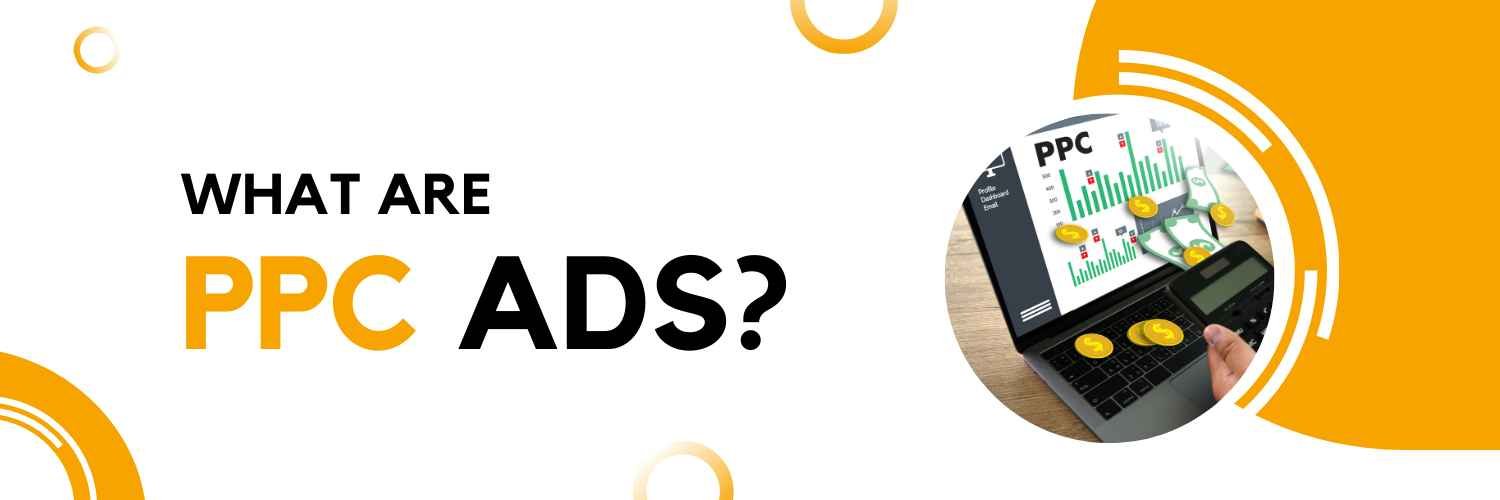
1. Definition and Mechanics
PPC (Pay-Per-Click) advertisements represent a digital advertising strategy in which advertisers incur a cost each time a user clicks on one of their ads. This approach involves purchasing traffic to a website rather than acquiring it through organic methods.
Prominent platforms for deploying PPC ads encompass search engines such as Google.com and Bing.com, as well as social media networks like Facebook and LinkedIn.
2. Types of PPC Ads
a.) Search Engine Advertising
Search engine advertising represents the most common type of Pay-Per-Click (PPC) advertising. This format shows ads on search engine results pages (SERPs). When individuals search for keywords that align with your offerings, your ad will pop up above or alongside the natural search results.
Google Ads serves as a notable example of this method. In this system, advertisers compete for keywords, including SEO roadmap, through bidding, and ad selection is based on how much they bid and the ad’s quality score. This PPC variant is particularly potent as it reaches users actively seeking specific information or products, demonstrating a higher degree of interest or intent.
b.) Display Advertising
These ads are shown on websites within an advertising network. The Google Display Network is a typical example, where ads appear on various websites that have agreed to show Google ads.
Display ads can include text, images, and videos and are shown to users while browsing online, but they have yet to search for your product or service actively.
This type is useful for brand awareness and retargeting campaigns, as they can reach users based on their previous internet behavior, interests, demographics, etc.
c.) Social Media Advertising
These ads are tailored to and shown on social media portals like Facebook, Instagram, LinkedIn, and Twitter. SMM ads can be highly targeted based on the extensive demographic and psychographic data these platforms have about their users.
Advertisers can target audiences based on interests, behaviors, location, age, gender, and more, making these ads highly effective for reaching specific audience segments.
d.) Remarketing (or Retargeting)
This type of PPC ad targets users who have previously visited your website or interacted with your brand online but have yet to make a purchase or complete a desired action.
Remarketing ads remind and encourage these users to return to your website to complete a purchase or another action. These ads typically have higher click-through and conversion rates because they are shown to people who are already familiar with your brand.
e.) Shopping Ads
These are product listing ads primarily used by e-commerce businesses. Platforms like Google Shopping and Bing Shopping allow businesses to display their products directly in the search results. These ads usually include a product image, title, price, and store name.
Shopping ads are effective because they give users a direct and clear view of the product and its price before they even click on the ad, making them highly targeted toward users who are ready to buy.
Why is PPC Important for Your Business?
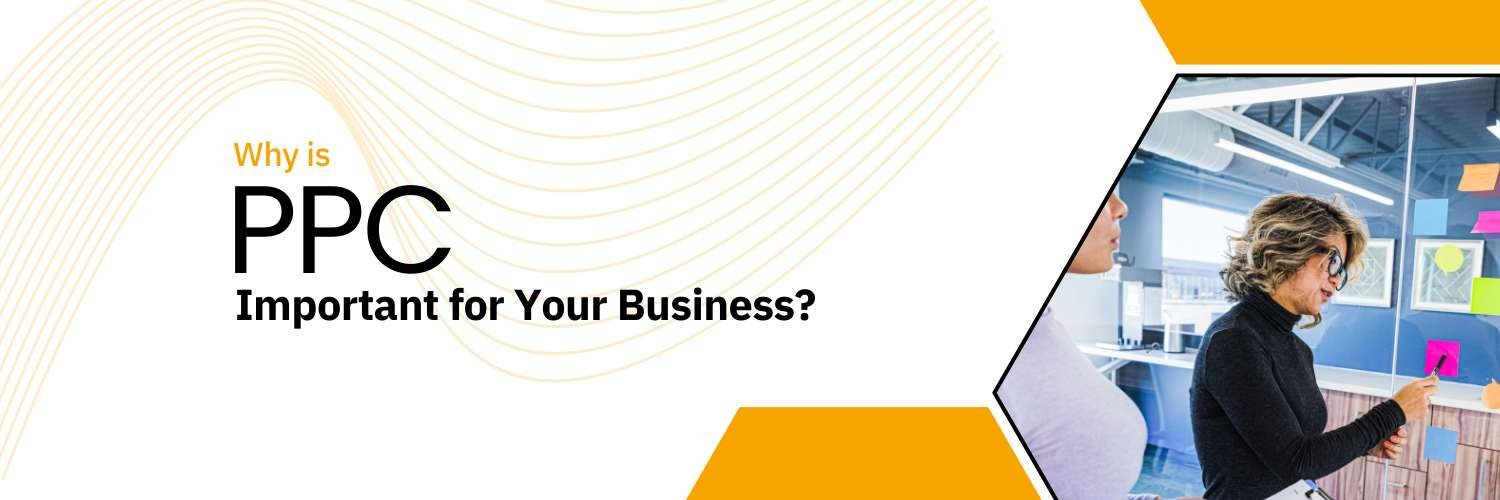
1. Targeted Audience Reach
- What it means: PPC advertising platforms provide tools to target specific groups of people based on various criteria. This could include demographic information (like age, gender, and income), geographic location (targeting by city, state, or country), or user behavior (such as previous website visits or search history).
- Why it’s important: By focusing your ads on the people most likely to be interested in your products or services, you increase the efficiency of your advertising spend. This precise targeting ensures that your ads are more relevant to the people who see them, which can lead to higher engagement rates and better overall campaign performance.
2. Measurable ROI
- What it means: ROI, or Return on Investment, is a key metric in advertising. PPC campaigns provide detailed data on how many people saw your ad, clicked on it, and what actions they took after clicking, such as making a purchase or signing up for a newsletter.
- Why it’s important: This level of measurement allows for precise tracking of how effective your ad spend is. You can see which ads are performing well and which aren’t, enabling you to make informed decisions about where to allocate your budget and how to adjust your strategies for better results.
3. Quick Results
- What it means: PPC can generate traffic to your website almost immediately after the campaign’s launch. This is in contrast to organic search strategies, like SEO, which often take longer to build momentum and see results.
- Why it’s important: The immediacy of PPC is particularly useful for time-sensitive campaigns, such as those for product launches, promotions, or seasonal events. It provides a quick way to increase visibility and drive traffic when time is of the essence.
4. Cost-Effective
- What it means: With PPC, you pay only when someone clicks on your ad. This pay-for-performance model can be more budget-friendly compared to other advertising methods where you pay for impressions or views.
- Why it’s important: It ensures your budget is spent on potential customers. Additionally, with proper optimization of your campaigns (like refining target keywords, improving ad copy, and enhancing landing pages), the cost per click can decrease over time, improving your return on investment.
5. Level Playing Field
- What it means: PPC platforms allow businesses of all sizes to reach their audience. Unlike traditional advertising, where larger budgets typically mean greater reach, PPC success is more dependent on the relevance and quality of the ads.
- Why it’s important: This creates an environment where small and medium-sized businesses can compete with larger companies. A well-crafted and targeted PPC campaign can be highly effective even with a smaller budget.
6. Enhances Brand Recognition
- What it means: When your PPC ads appear in search results or on websites, people see them even if they don’t click them. This repeated exposure can increase awareness of your brand.
- Why it’s important: Brand recognition is a vital part of marketing. The more familiar people are with your brand, the more likely they are to trust and consider your products or services in the future. This aspect of PPC helps build your brand’s identity and reputation over time, even among those who have yet to interact with your business directly.
Crafting a Successful PPC Strategy

1. Understanding Keywords
a.) The Role of Keywords in PPC
Keywords are the foundation of PPC campaigns. They are the terms or keywords that users type into search engines when looking for information, products, or services. In PPC, you bid on these keywords, and when people search for these terms, your ads may appear.
b.) Choosing the Right Keywords
c.) Keyword Types
Broad keywords reach a wider audience but might be vague. In contrast, long-tail keywords (more specific, longer phrases) attract a more targeted audience with a higher intent to purchase or engage.
2. Crafting Compelling Ad Copy
Importance of Ad Copy: Your ad copy is your chance to make a first impression. It must be engaging enough to stand out and relevant enough to be clicked on.
a.) Elements of Effective Ad Copy
- Headline: This should be attention-grabbing and include your main keyword.
- Description: Provide more details about your offer, highlighting benefits and features.
- Call-to-Action (CTA): This is crucial. A clear CTA like ‘Buy Now,’ ‘Learn More,’ or ‘Sign Up’ guides the user on the next steps.
- Alignment with Keywords and Landing Page: The ad copy should closely align with the keywords you’re bidding on and the landing page content it directs to. This consistency ensures a smooth user experience and can improve your ad’s performance.
b.) Designing Effective Landing Pages
- Purpose of a website Landing Page: The landing page is where users end up after clicking your ad. It should deliver on the promise made in the ad and guide visitors toward a desired action.
- Relevance: It should address the user’s search query or the ad’s content directly.
- Simplicity and Clarity: The design should be clean and focused, with a clear value proposition.
- Strong CTA: Like your ad copy, the landing page should have a clear, compelling CTA.
- Consistency: Ensure the messaging and design on the landing page are consistent with the ad. This builds trust and increases the likelihood of conversion.
3. A/B Testing
- What is A/B Testing? A/B testing, or split testing, involves creating two versions of your ad or landing page with one varying element, like the headline, ad copy, or CTA.
- Purpose: The goal is to determine which version performs better regarding click-through rate, conversion rate, or other relevant metrics.
- Continuous Improvement: Regular A/B testing allows you to refine your ads and landing pages based on real user data, leading to more effective campaigns.
4. Continual Optimization
- Ongoing Process: PPC requires continuous attention and adjustment. Setting up a campaign and leaving it running needs to be more.
- Keyword Bids: Regularly review and adjust your bids for maximum ROI.
- Ad Copy and Landing Pages: Update and test different elements based on performance data.
- Audience Targeting: Refine your audience targeting to reach the most relevant users.
- Use of Analytics: Utilise analytics tools to track the performance of your campaigns. This data will inform your decisions and help you optimize for better results.
How much does PPC advertising cost?

The cost of PPC advertising can vary significantly. Several factors influence this variability:
- Industry: Due to greater competition, some industries have higher costs per click (CPC). For example, legal services or insurance typically have higher CPCs.
- Competitiveness of Keywords: Popular keywords are more expensive. If many businesses bid on the same keywords, the cost to prominently feature your ad for these keywords increases.
- Ad Quality: Platforms like Google Ads use a quality score to determine the cost of the placement of ads. Higher-quality ads (relevant, with a good click-through rate) often cost less and get better placement.
Can PPC help with local business promotion?

Yes, PPC is highly effective for local businesses. Here’s why:
- Local Targeting: PPC platforms offer tools to target ads geographically. Businesses can target customers in specific locations, making it ideal for local businesses aiming to reach a nearby audience.
- Local Keywords: By focusing on local-specific keywords, businesses can capture customers’ attention in their area.
Is PPC suitable for all businesses?
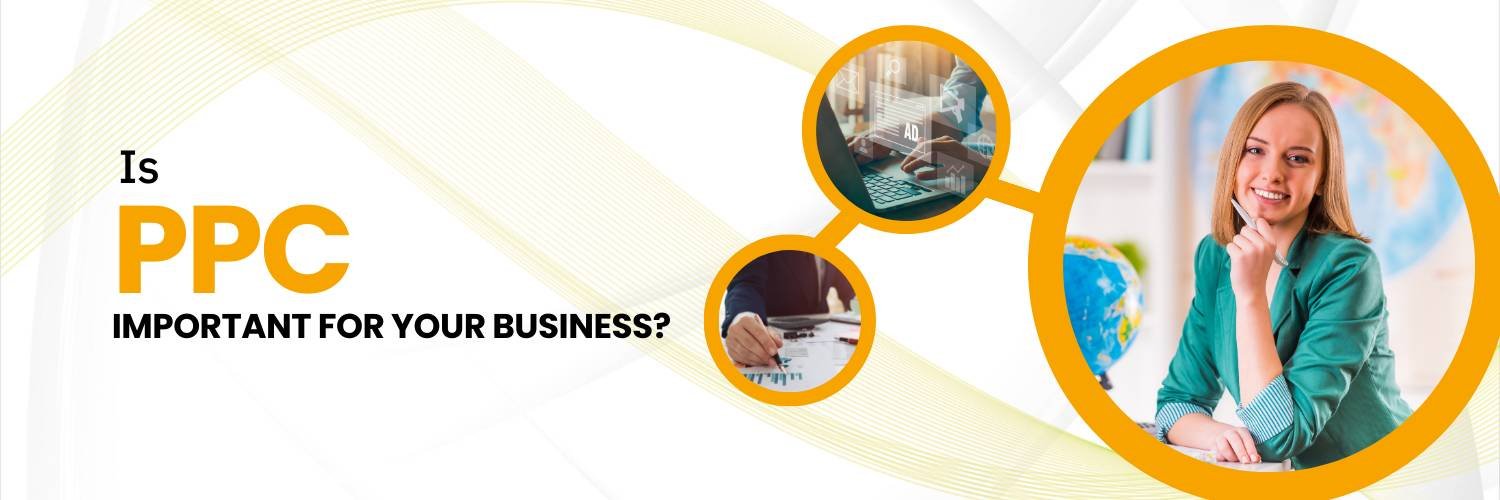
PPC is quite versatile, but its suitability can depend on various factors:
- Business Model: Some business models benefit more from PPC. For instance, e-commerce sites might find it more advantageous than businesses in very niche markets.
- Market Niche: The effectiveness of PPC can vary depending on the market niche. Highly specialized businesses might need more relevant high-volume keywords to bid on.
How long does it take to see results from PPC?
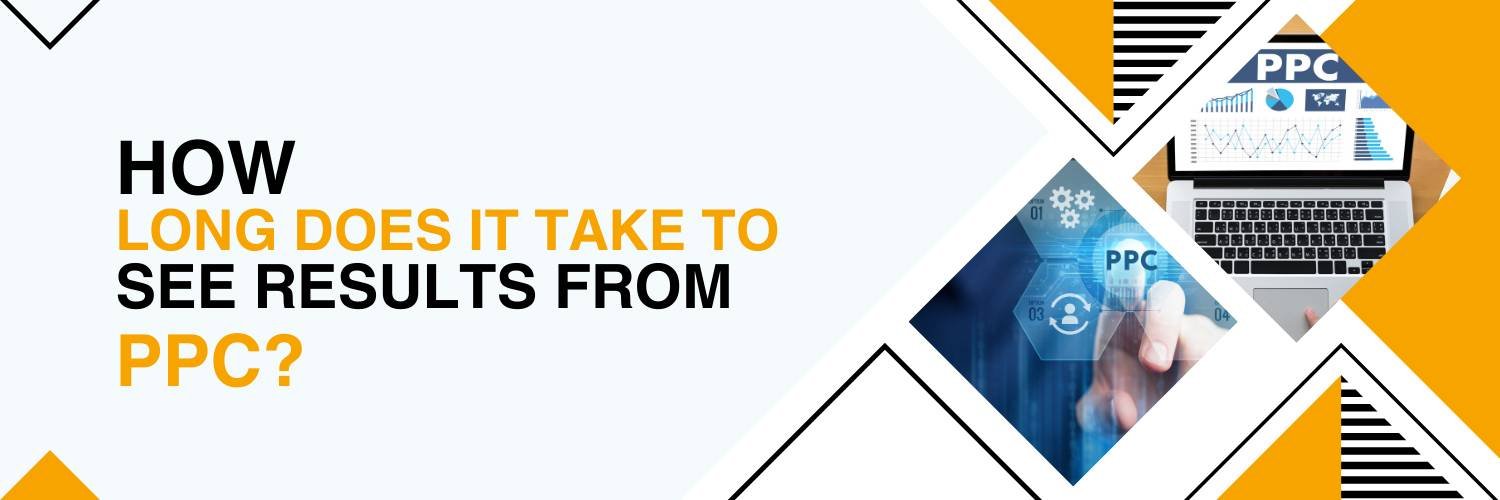
The timeline for seeing results from PPC can differ based on what you’re measuring:
- Immediate Results: Increased traffic to your website can be noticed almost as soon as your PPC campaign goes live.
- Longer-Term Results: Other metrics, like conversion rates or return on investment (ROI), may take longer to manifest as they depend on factors like the effectiveness of your landing pages and the customer journey.
Do I need a big budget to start with PPC?
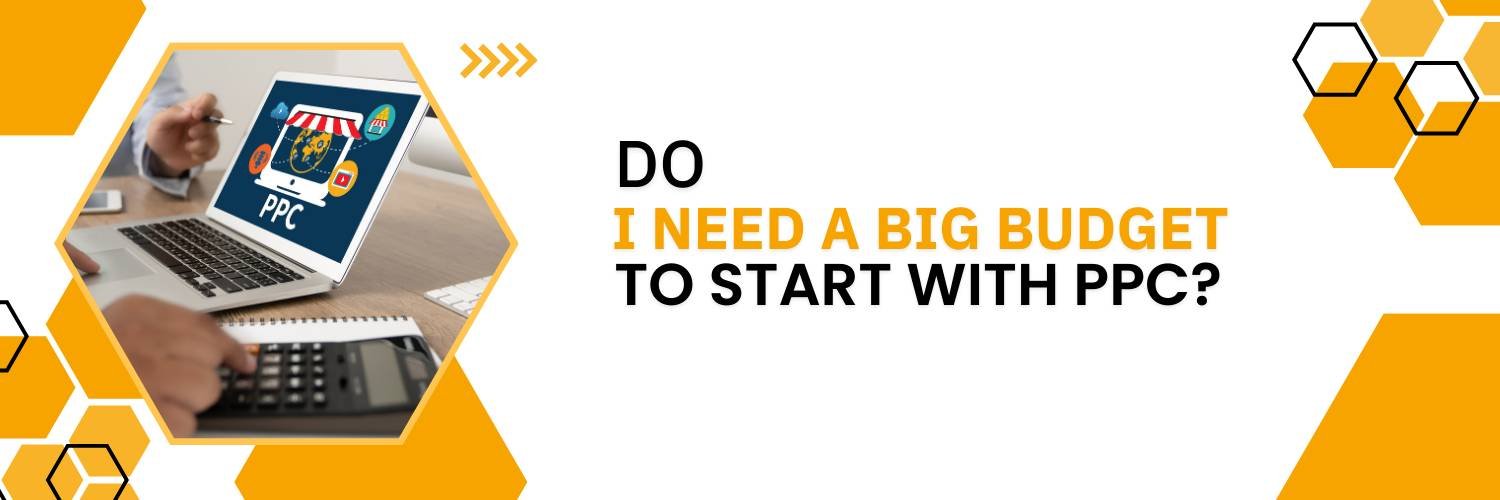
Starting a PPC campaign doesn’t require a large budget:
- Flexible Budgeting: You can begin with a small amount and adjust your spending based on the results you see. This flexibility makes PPC accessible even to businesses with limited marketing budgets.
- Scalability: As you start to see positive outcomes, you can increase your budget, allowing for scalable growth based on performance.
Conclusion
PPC ads offer a unique opportunity to reach potential customers actively searching for products or services like yours. When executed correctly, PPC can drive traffic and conversions and, ultimately, contribute to the growth and success of your business. Embracing this dynamic advertising model can open new avenues for marketing success and brand development.

